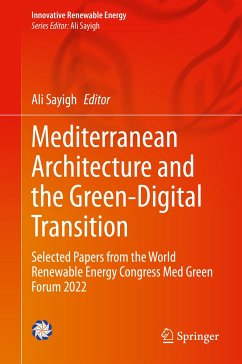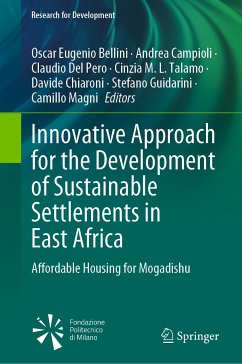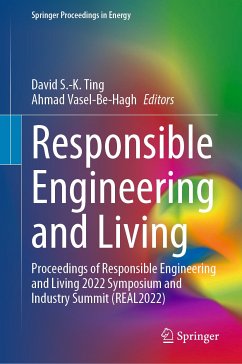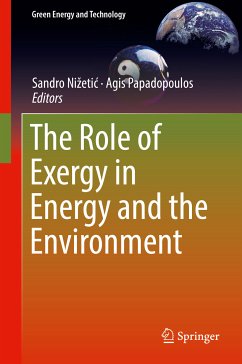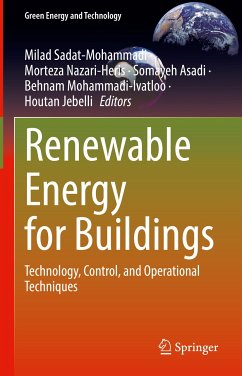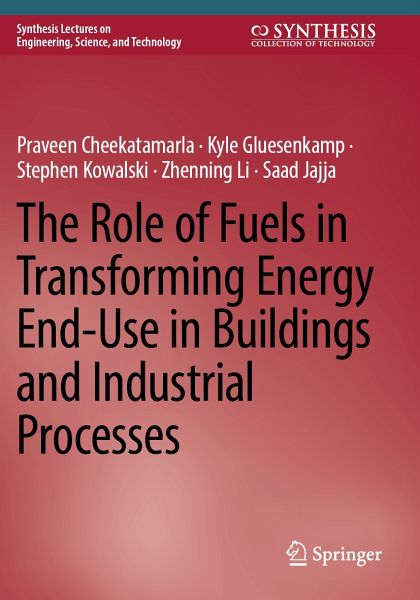
The Role of Fuels in Transforming Energy End-Use in Buildings and Industrial Processes (eBook, PDF)

PAYBACK Punkte
11 °P sammeln!
Energy-efficient technologies are necessary to lower the carbon footprint for a transition towards clean energy in a sustainable manner. This book examines what role fuels have in the transformation of end-use in buildings and industrial processes. Energy-efficient technologies are necessary to lower the carbon footprint for a transition towards clean energy in a sustainable manner. Efficient utilization of primary energy resources, including renewables, to support the current and future energy needs while targeting grid resiliency, energy, and environmental security at an affordable cost is o...
Energy-efficient technologies are necessary to lower the carbon footprint for a transition towards clean energy in a sustainable manner. This book examines what role fuels have in the transformation of end-use in buildings and industrial processes. Energy-efficient technologies are necessary to lower the carbon footprint for a transition towards clean energy in a sustainable manner. Efficient utilization of primary energy resources, including renewables, to support the current and future energy needs while targeting grid resiliency, energy, and environmental security at an affordable cost is of significant value. The author analyzes heat pumps, fuel-driven thermal providers, and power systems configurations and looks at the sensitivity of the electrical grid's carbon intensity and tariff towards carbon footprint and energy costs compared with fuel-driven technologies. The role of low-carbon, zero-carbon, and carbon-negative fuels, such as power-to-gas (P2G), power-to-liquid (PtL), hydrogen, and biogas, in conjunction with polygeneration technologies, are discussed. This book also examines two different scenarios focused on the sensitivity of the pace of decarbonization of the electrical grid and fuel supply on operational energy-related carbon emissions.
- Compares electricity versus fuel as a primary energy source
- Explores the role of fuels in the decarbonization journey
- Examines the value proposition of currently available energy solutions
Dieser Download kann aus rechtlichen Gründen nur mit Rechnungsadresse in A, B, BG, CY, CZ, D, DK, EW, E, FIN, F, GR, HR, H, IRL, I, LT, L, LR, M, NL, PL, P, R, S, SLO, SK ausgeliefert werden.



